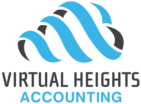Once your business is incorporated, it is a separate entity for tax purposes. This means extra paperwork for you and your accountant. It also means more opportunities as far as corporate tax planning is concerned.
Paying yourself a wage rather than living off the profits of your business like you do when you’re a proprietor is one of the opportunities available when your business is incorporated.
But how do you know how much to pay yourself or even if you should? That’s where strategizing and tax planning comes in.
What is corporate tax planning?
Corporate tax planning is developing strategies that make the most sense for you and your business. Often, this will be a plan that results in you paying less tax in your corporation. With tax planning, your accountant will usually look at your personal taxes in addition to your corporate taxes to get a sense of your overall tax picture.
Your accountant will analyze various scenarios to determine which one is the best for you given the stage of your business. While the flexibility to pay yourself wages is one tax planning strategy, there are many other things to consider.
Some tax deductions are discretionary. This means you don’t have to use them if it’s not to your advantage. Capital cost allowance (CCA) is one example. If your corporation has already incurred a loss, there may not be an advantage to claiming CCA and increasing that loss. It really depends on your business’s history and future prospects. Your accountant will consider things like this during a tax planning session.
How is corporate tax planning different from compliance?
Tax compliance is following the guidelines set out in the Income Tax Act to file your tax returns in accordance with the law by the deadline set by the government. What compliance doesn’t include is the analysis involved with tax planning. In tax planning, various scenarios are considered to determine the best way to file your taxes.
In Canada, we have a self-reporting tax system. That means it’s up to the taxpayer to claim all the deductions and credits they’re eligible for. The Canada Revenue Agency won’t tell you when you’ve missed something unless it means more money in their pocket. They don’t care about saving you the most tax, but your accountant does.
How does this save you money?
Corporate tax planning directly affects the amount of tax your company pays. This means, if you pay less tax, you’ll save more money. It’s worth it to do some tax planning with your accountant. Just like with personal taxes, corporations have certain deductions and tax credits they’re eligible for. Deductions reduce your taxable income and credits directly reduce your tax bill. The deductions and credits available to your business depend on your industry.
Any business can benefit from money-saving strategies. Tax planning applies to all levels of businesses regardless of how long they’ve been around. At Virtual Heights Accounting, we monitor your tax situation and provide proactive advice. Contact us to learn more about our corporate tax planning services.





